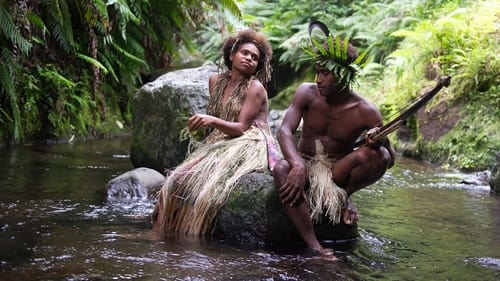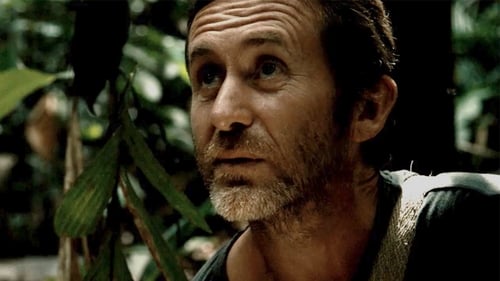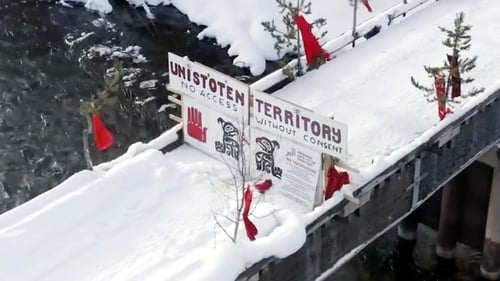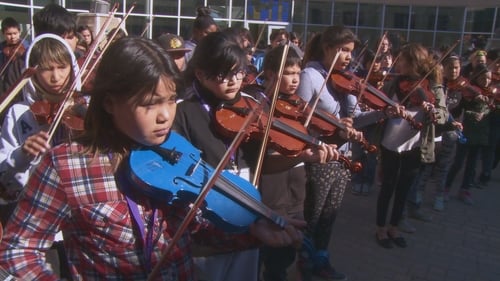Totem: Return and Renewal (2007)
Género : Documental
Tiempo de ejecución : 23M
Director : Gil Cardinal
Sinopsis
In this follow-up to his 2003 film, Totem: the Return of the G'psgolox Pole, filmmaker Gil Cardinal documents the events of the final journey of the G'psgolox Pole as it returns home to Kitamaat and the Haisla people, from where it went missing in 1929.

Los muertos están volviendo a la vida en la reserva natural de Mi'gMaq de la comunidad de Red Crow. Los únicos que parecen ser inmunes al extraño virus que se está propagando son los indígenas que habitan la zona.

Este documental se centra en la lucha de las minorías de Nueva Escocia contra funcionarios de la Administración por los efectos letales de los residuos industriales.

En una isla remota del Océano Pacífico, en la que abundan los bosques, la lluvia y la actividad volcánica, dos jóvenes enamorados deciden desafiar a sus tribus. Wawa y Dain se aman, pero él es el nieto de un jefe de los Yakel y no pueden estar juntos. Por eso los dos deciden huir, pero serán perseguidos por enemigos guerreros que intentarán acabar con sus vidas. Entonces tendrán que decidir entre sus corazones y el futuro de la tribu, mientras que los aldeanos deberán enfrentarse a una dura decisión: la preservación de su cultura tradicional o la adaptación a las crecientes demandas de libertad individual.

For ancient Mayans, cocoa was as good as gold. For subsistence farmer Eladio Pop, his cocoa crops are the only riches he has to support his wife and 15 children. As he wields his machete with ease, slicing a path to his cocoa trees, the small jungle plot he cultivates in southern Belize remains pristine and wild. His dreams for his children to inherit the land and the traditions of their Mayan ancestors present a familiar challenge. The kids feel their father's philosophies don't fit into a global economy, so they're charting their own course. Rohan Fernando's direction tenderly displays a generational shift, causalities of progress in modern times and a man valiantly protecting an endangered culture. Breathtaking vistas of lush rainforests contrast with the urban dystopia that pulled Pops children away from him. Will one child return to carry on a waning way of life

In the Land of the Head Hunters is a 1914 silent film fictionalizing the world of the Kwakwaka'wakw (Kwakiutl) peoples of the Queen Charlotte Strait region of the Central Coast of British Columbia, Canada, written and directed by Edward S. Curtis and acted entirely by Kwakwaka'wakw natives. It was the first feature-length film whose cast was composed entirely of Native North Americans; the second, eight years later, was Robert Flaherty's Nanook of the North.

Explorer Bruce Parry visits nomadic tribes in Borneo and the Amazon in hope to better understand humanity's changing relationship with the world around us.

In this era of “reconciliation”, Indigenous land is still being taken at gunpoint. INVASION is a new film about the Unist’ot’en Camp, Gidimt’en checkpoint and the larger Wet’suwet’en Nation standing up to the Canadian government and corporations who continue colonial violence against Indigenous people. The Unist’ot’en Camp has been a beacon of resistance for nearly 10 years. It is a healing space for Indigenous people and settlers alike, and an active example of decolonization. The violence, environmental destruction, and disregard for human rights following TC Energy (formerly TransCanada) / Coastal GasLink’s interim injunction has been devastating to bear, but this fight is far from over.

The territory of Akwesasne straddles the Canada-U.S. border. When Canadian authorities prohibited the duty-free cross-border passage of personal purchases - a right established by the Jay Treaty of 1794 - Kanien'kéhaka protesters blocked the international bridge between Ontario and New York State.

CREE CODE TALKER reveals the role of Canadian Cree code talker Charles 'Checker' Tomkins during the Second World War. Digging deep into the US archives it depicts the true story of Charles' involvement with the US Air Force and the development of the code talkers communication system, which was used to transmit crucial military communications, using the Cree language as a vital secret weapon in combat.

The Blackfoot bareback horse-racing tradition returns in the astonishingly dangerous Indian Relay. Siksika horseman Allison Red Crow struggles with secondhand horses and a new jockey on his way to challenging the best riders in the Blackfoot Confederacy.

Legendary documentary filmmaker Alanis Obomsawin provides a glimpse of what action-driven decolonization looks like in Norway House, one of Manitoba's largest First Nation communities.

This documentary digs into the stories of Indigenous women and families to reclaim their Indian Status through their fight for the elimination of sex-discrimination in the Indian Act. It highlights the impacts of the law on individuals, families and communities. Since the passing of Bill S-3 and its amendments, thousands of Indigenous people are now eligible for Indian Status.


Gil Cardinal searches for his natural family and an understanding of the circumstances that led to his becoming a foster child. An important figure in the history of Canadian Indigenous filmmaking, Gil Cardinal was born to a Métis mother but raised by a non-Indigenous foster family, and with this auto-biographical documentary he charts his efforts to find his biological mother and to understand why he was removed from her. Considered a milestone in documentary cinema, it addressed the country’s internal colonialism in a profoundly personal manner, winning a Special Jury Prize at Banff and multiple international awards.

Herlinda Augustin is a Shipibo healer who lives with her family in Peruvian Amazonia. Will she and other healers be able to maintain their ancient tradition despite Western encroachment?

Men and women of the !Kung people in Ojokhoe, Namibia perform healing dances by firelight. First we see men perform the giraffe dance, and then women perform the !gwa dance.

TOKYO Ainu features the Ainu, an indigenous people of Japan, living in Greater Tokyo (Tokyo and its surrounding areas), who are and actively in promoting their traditional culture in a metropolitan environment away from their traditional homeland, Hokkaido. Shedding a common assumption that all Ainu live in Hokkaido, the film captures the feelings, thoughts and aspirations of Ainu people that who try to follow the Ainu way no matter where they live.

This short documentary presents the empowering story of Rodney "Geeyo" Poucette's struggle against prejudice in the Indigenous community as a two-spirited person.

Director Clint Alberta takes us on a hilarious and bittersweet journey into the hearts and minds of some very ordinary, extraordinary young Canadians. Clint, taking on the role of Clint Star, seeks out his far-flung buddies, young Natives like himself. They talk about sex and life... love and abuse... 500 years of oppression--with humour, grace and courage. Deep Inside Clint Star explores issues of identity, sexuality and intimacy, while retaining the creative and playful style of a director who is not afraid of turning the camera on himself. This engaging documentary will draw you out of yourself and deep inside Clint Star.

En el altiplano peruano, vive junto a su perro, Honorata Vilca, una mujer analfabeta de ascendencia quechua, dedicada a la venta de golosinas . Mientras empieza la temporada de lluvias ella relata pasajes de su vida, hasta que una tarde ocurre algo fatal que pareciera hacer llorar al mismo cielo.












